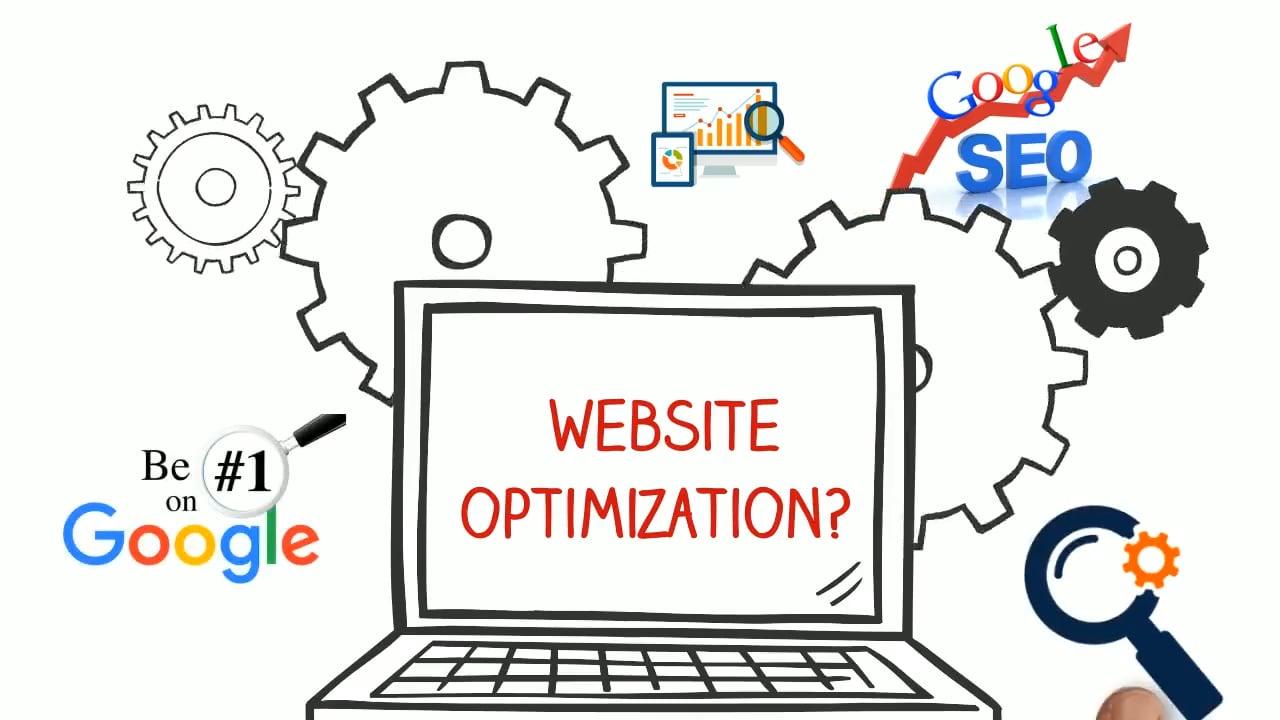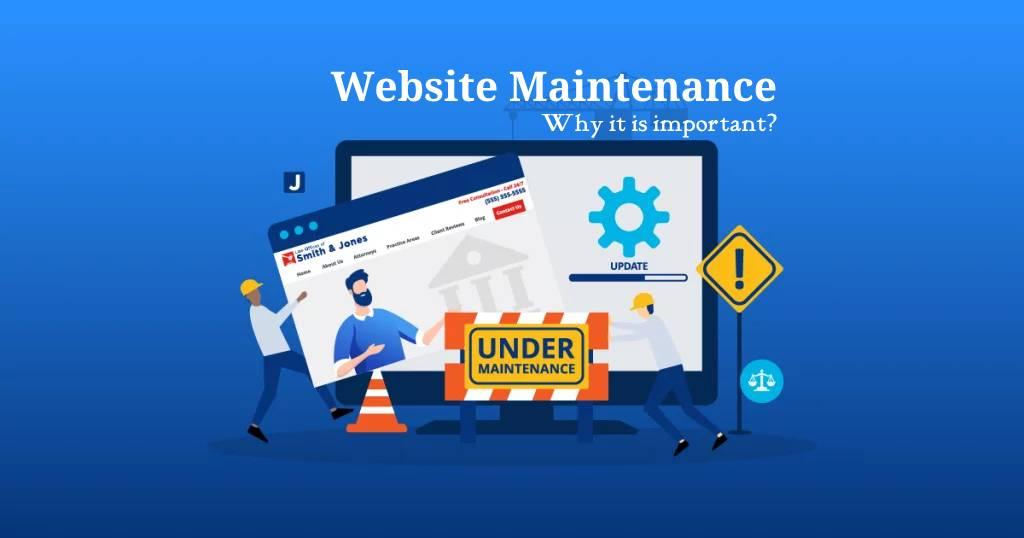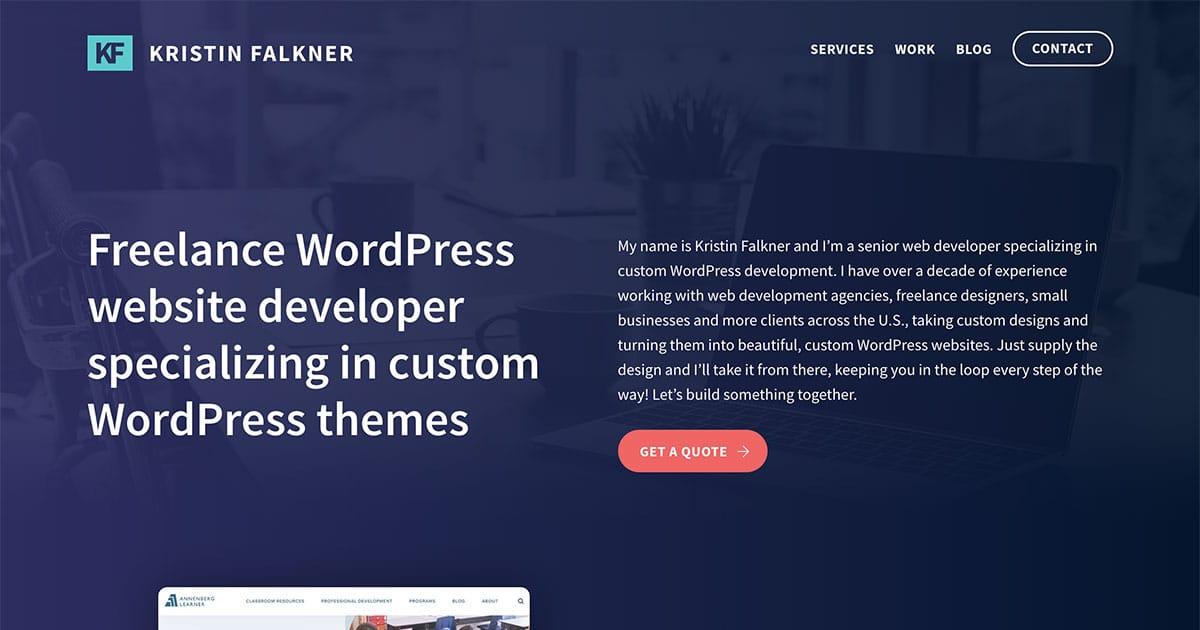Are you ready to take your freelance business to the next level? If you’ve been dreaming of a professional online presence that showcases your skills and attracts clients, then you’re in the right place! Creating a WordPress website is one of the best ways to establish your brand and stand out in today’s competitive market. But don’t worry if you’re not a tech whiz—building a stunning wordpress site is easier than you might think. In this step-by-step guide, we’ll walk you through everything you need to no to create your own freelance website from scratch. Whether you’re a graphic designer, writer, or consultant, we’ll help you turn your vision into reality, empowering you to showcase your work and connect with potential clients. So grab your favorite beverage, get cozy, and let’s dive into the exciting world of WordPress!
Understanding the Importance of a Freelance WordPress Website for Your Business
In today’s digital landscape, having a professional online presence is more crucial than ever, especially for freelancers. A dedicated WordPress website can serve as a powerful platform to showcase your skills, attract clients, and build your brand identity. Without it, you may be missing out on opportunities that could elevate your business to new heights.
Think of your freelance website as your digital business card. It not only highlights your services but also gives potential clients a glimpse of your work and personality. Here are some key reasons why investing in a WordPress site is essential for freelancers:
- Portfolio Showcase: A well-designed website allows you to showcase your projects and success stories in a visually appealing manner. Clients are more likely to engage with freelancers who can demonstrate their skills through a concrete portfolio.
- Brand Building: Your website is an opportunity to establish your personal brand.By curating content and design that reflects your unique voice and style, you create a memorable impression that can set you apart from the competition.
- SEO Benefits: With the right SEO strategies in place, a WordPress website can help you rank higher in search engine results. This visibility means more potential clients can discover your services.
- Client Trust: A professional website conveys credibility. Clients are more likely to trust freelancers who invest in their online presence, leading to higher conversion rates.
Additionally, a freelance WordPress site provides you with the adaptability to manage your content easily. With various plugins and themes available, you can customize your site to meet your specific needs, whether that’s integrating a blog, adding e-commerce capabilities, or implementing contact forms to streamline client inquiries.
To further illustrate the impact of having a dedicated site, consider the following table that compares freelancers with and without a professional website:
| With Professional Website | Without Professional Website |
|---|---|
| Higher client inquiries | Potential clients may overlook you |
| Showcase of past work | No portfolio to display |
| Better SEO rankings | Harder to find online |
| Stronger brand identity | Generic presence on social media |
a freelance WordPress website isn’t just a luxury; it’s a necessity for anyone serious about their freelance business. by establishing a solid online presence, you’re not only increasing your chances of attracting clients but also enhancing your overall professional reputation. Whether you’re just starting out or looking to elevate your existing business, creating a wordpress site is the first step towards achieving your freelance goals.
Choosing the Right Domain Name to Make Your Brand Stand Out
Choosing a memorable and relevant domain name is crucial for establishing your brand’s online presence. A well-chosen domain not only represents your business but also enhances your credibility and helps with SEO. Here are some key points to consider:
- Keep It Short and Simple: Aim for a domain name that is easy to spell and type.Shorter names are also easier to remember and less prone to typos.
- Make It Brandable: Your domain should reflect your brand identity. Think of names that can be transformed into a recognizable brand, similar to how “Google” or “Spotify” has become synonymous with their services.
- Use Keywords Wisely: Incorporating relevant keywords related to your services can improve your SEO, making it easier for potential clients to find you online. However, don’t overstuff keywords; keep it natural.
- Choose the Right Domain Extension: While .com is the most popular, other extensions like .net, .co, or even niche-specific ones like .design can work if thay align with your brand.
Once you’ve brainstormed a list of potential names, it’s time to narrow it down. Check for:
- Availability: Use a domain search tool to see if your desired name is available. If it’s taken,consider slight variations or different extensions.
- Trademarks: Ensure your chosen name doesn’t infringe on existing trademarks. This can save you from legal headaches down the road.
- social Media Consistency: Look for name availability across social media platforms to maintain a consistent brand image.
To make the decision-making process easier, create a comparison table for your top choices:
| Domain Name | Availability | SEO Potential | Brandability |
|---|---|---|---|
| freelanceworks.com | Available | High | High |
| myfreelancehub.net | Available | Medium | Medium |
| creativefreelancer.co | Available | High | High |
| freelance-portfolio.org | Unavailable | Medium | Medium |
After carefully weighing your options, select a domain name that not only resonates with your brand but also appeals to your target audience. This foundational step can set the tone for your freelance WordPress website and ultimately lead you to a successful online presence.

Selecting the Perfect Hosting Provider for a Smooth Experience
Choosing the right hosting provider is crucial for the success of your freelance WordPress website. A reliable host ensures that your site runs smoothly, loads quickly, and remains accessible to your audience at all times. With so many options available, it can be overwhelming to determine which provider will best meet your needs. Here are some key factors to consider:
- Performance and Speed: Look for hosting services that offer robust performance metrics. A quick-loading site enhances user experience and can even boost your SEO rankings.
- Uptime Guarantee: You want your site to be up and running 24/7. Aim for a provider that guarantees at least 99.9% uptime.
- Customer Support: Reliable customer support is invaluable, especially if you’re new to website management. Opt for hosts that provide 24/7 support through multiple channels, like chat, email, or phone.
- Scalability: As your freelance business grows, your website will need to adapt. Choose a host that allows for easy upgrades to accommodate increased traffic and additional features.
- Security Features: Look for hosts that offer robust security measures such as SSL certificates, daily backups, and malware scanning to protect your site and customer data.
When comparing hosting options,it can be helpful to create a side-by-side comparison. Here’s a simple table to illustrate some popular hosting providers and their key features:
| hosting Provider | Uptime Guarantee | Support | Starting Price |
|---|---|---|---|
| Bluehost | 99.9% | 24/7 Live Chat | $2.95/month |
| 99.99% | 24/7 Phone, chat | $3.99/month | |
| HostGator | 99.9% | 24/7 Support | $2.75/month |
Always check for user reviews and testimonials to get an idea of other customers’ experiences. A host may have great marketing,but real-world feedback can reveal performance issues or excellent service that isn’t instantly apparent. Prioritize providers that have positive feedback and a solid reputation in the WordPress community.
Lastly, take advantage of money-back guarantees that many hosting companies offer. This allows you to test their services without long-term commitment. A trial period is an excellent opportunity to assess everything from customer support responsiveness to the ease of use of their dashboard.
exploring WordPress Themes That Reflect Your Unique style
Choosing the right theme for your WordPress website is like picking the perfect outfit for an important event—it reflects who you are and what you stand for. With thousands of options available, it can be overwhelming to find a theme that not only looks good but also enhances your brand identity. Here are some key factors to consider when exploring themes that resonate with your unique style:
- Visual Aesthetics: Look for themes that offer a clean, modern design that resonates with your personal or business style. Pay attention to color schemes, typography, and layout options.
- Customization Options: the best themes allow you to customize various elements,from headers to footers,ensuring that your website feels personalized and aligned with your branding.
- Responsive Design: In today’s mobile-first world, ensure that the theme you choose looks great on all devices.A responsive design is crucial for providing a seamless user experience.
- Integration with Plugins: Make sure the theme is compatible with essential plugins that enhance functionality, such as SEO tools and social media integrations.
- Support and Updates: Opt for themes that come with reliable support and regular updates. This is essential for keeping your site secure and running smoothly.
To help you narrow down your choices, here’s a comparison table of three popular WordPress themes that are perfect for freelancers:
| Theme Name | Customization Options | Mobile-Friendly | Support |
|---|---|---|---|
| Astra | High | Yes | 24/7 Live Chat |
| Divi | Extensive | Yes | Email Support |
| OceanWP | Moderate | yes | Community Forum |
As you delve into the world of wordpress themes, remember that the right choice can significantly impact your site’s performance and user engagement. Don’t rush the process; take your time to experiment with different themes in the preview mode. This is your opportunity to see how various designs, colors, and layouts can alter the overall feel of your site.
Ultimately, the theme you select should not only align with your professional image but also enhance the user experience. A well-designed site can captivate potential clients and compel them to take the next step—whether that’s reaching out for a consultation or exploring your portfolio further. So go ahead, explore, and find a theme that meets your needs and embodies your style!

Essential Plugins to Enhance Functionality and User Experience
When building a freelance WordPress website,choosing the right plugins can significantly boost your site’s functionality and enhance the user experience.With the plethora of options available, it can be daunting to decide which ones are essential. Here’s a curated list that will set your site up for success:
- Elementor: This powerful page builder allows you to create stunning designs with a drag-and-drop interface, making it easy for anyone to customize their site without coding knowledge.
- Yoast SEO: Optimize your website for search engines with this user-friendly plugin. It provides real-time analysis and tips to help you improve your on-page SEO.
- WPForms: Simplify the process of creating contact forms with WPForms. Its intuitive builder lets you create any type of form in minutes, ensuring seamless communication with potential clients.
- WooCommerce: If you plan to sell services or products directly from your site, WooCommerce is your go-to plugin for creating a fully-functional online store.
- MonsterInsights: Understand your audience better with this Google Analytics plugin that makes it easy to track your website’s performance and user behavior.
- Wordfence Security: Protect your site from malicious attacks and vulnerabilities with this comprehensive security plugin that provides a firewall and malware scanner.
Integrating these plugins not only enhances the appearance and functionality of your freelance website but also ensures that your visitors have a smooth and engaging experience. To give you an idea of how these plugins can work together, here’s a simple table showcasing their roles:
| Plugin | Functionality | User Experience Impact |
|---|---|---|
| Elementor | Page Builder | Visually appealing design |
| yoast SEO | SEO Optimization | Increased visibility |
| WPForms | Contact Forms | Easy communication |
| WooCommerce | E-commerce | Convenient purchasing |
| MonsterInsights | Analytics | Data-driven decisions |
| Wordfence Security | security | Increased trust |
By carefully selecting and integrating these essential plugins, you can create a professional and efficient freelance WordPress website that not only attracts visitors but also converts them into clients. The right tools can make all the difference in how users perceive your brand and services.

Crafting Compelling Content that Captivates Your Audience
When diving into the world of freelance WordPress websites, the key is to ensure your content speaks directly to your audience’s needs and interests. Here are some essential strategies to elevate your content and engage your visitors:
- Know Your Audience: Before you even start typing,take a moment to understand who you’re writing for. What are their challenges? what solutions are they seeking? Tailoring your content to address these points will make it resonate.
- Tell a Story: Humans are wired to connect with stories. Share your own experiences in freelancing, the challenges you faced, and how you overcame them. This not only builds trust but also makes your content relatable.
- Use Compelling Visuals: A picture is worth a thousand words. Incorporate images, infographics, or videos to break up text and illustrate your points. this keeps the reader engaged and enhances understanding.
- Be Clear and Concise: Avoid jargon and complex sentences.Aim for clarity in your writing. Use short paragraphs, bullet points, and headers to make your content scannable and easy to digest.
Consider the following table as a quick reference to keep your content structured and appealing:
| Content Element | Purpose |
|---|---|
| Headings | To organize content and guide readers. |
| Images | To provide visual breaks and enhance storytelling. |
| Call-to-Actions | To prompt user engagement, like signing up or commenting. |
| Links | To provide additional resources or references. |
lastly, never underestimate the power of editing. After drafting your content, take the time to revise and polish it. Look for opportunities to tighten your prose,eliminate redundancies,and ensure your message is clear.A well-crafted piece not only attracts readers but also keeps them coming back for more.

Optimizing Your Website for Search Engines to Boost Visibility
When it comes to increasing your online presence, a well-optimized website is essential. Search engines use complex algorithms to rank sites, and understanding how to work with these can dramatically boost your visibility. To get started, focus on the following key areas:
- Keyword Research: identify relevant keywords that your target audience is searching for.Use tools like Google Keyword Planner or SEMrush to find high-traffic, low-competition keywords.
- On-Page SEO: Optimize your content by including keywords naturally within titles, headings, and throughout your text. Ensure that your images are tagged with descriptive alt text.
- Site Structure: A well-organized website enhances user experience and helps search engines crawl your site more effectively. Create a clear hierarchy with categories and subcategories.
- Mobile Responsiveness: With the increasing use of mobile devices, it’s crucial that your site looks great and functions well on all screen sizes. Use responsive design techniques to ensure compatibility.
- Page Speed: A slow-loading site can lead to higher bounce rates. Utilize tools like Google PageSpeed Insights to analyze and improve your loading times.
Don’t forget about technical SEO! This involves optimizing the backend of your website, ensuring that search engines can easily access your content. Implementing the following can make a significant difference:
| Technical SEO Element | Description |
|---|---|
| Sitemap.xml | Helps search engines understand the structure of your site and index it more efficiently. |
| Robots.txt | Guides search engines on which pages to crawl and which to ignore. |
| SSL Certificate | Secures your site and builds trust with users and search engines. |
| Schema Markup | Enhances search result listings with rich snippets,helping improve click-through rates. |
build your authority through quality backlinks. Engage with other bloggers and websites in your niche,guest post,and participate in forums.Having reputable sites link back to your content signals to search engines that your site is trustworthy and valuable.
Regularly updating your content can also help maintain your rankings. Search engines favor fresh content, so revisit your older posts, update them with new facts, and ensure they remain relevant. Creating a blog or resource section on your wordpress site can be an excellent way to keep your content dynamic and engaging.

Integrating Social Media to Expand Your Reach and Engagement
Integrating social media into your freelance WordPress website is a game-changer for expanding your reach and boosting engagement with your audience. By strategically placing social media links and sharing options, you can drive traffic to your site while fostering a community around your brand. Here are some effective ways to make it happen:
- Social Sharing buttons: Add social sharing buttons on your blog posts and portfolio pages. This encourages visitors to share your content, thus increasing visibility.
- Live Social Feeds: Incorporate live feeds from your social media accounts. This not only showcases your latest updates but also keeps your website dynamic and engaging.
- Engaging Content: Create shareable content like infographics, videos, and tutorials. High-quality, valuable content is more likely to be shared across social platforms.
Don’t forget to leverage your social media profiles to direct followers to your WordPress website. Use compelling calls-to-action (CTAs) in your posts,encouraging people to visit your site for more detailed information,exclusive content,or special offers. Here’s a quick strategy breakdown:
| Social Media Platform | Type of Content | Effective CTA |
|---|---|---|
| Blog posts | “Read more on my website!” | |
| Visual content | “Link in bio!” | |
| Quick tips | “Check out my full article!” | |
| Professional insights | “Discover more on my site!” |
Consider running targeted social media ads that link directly to your website. This can attract potential clients who are actively seeking the services you offer. Tailoring your ad content to highlight your unique selling points can significantly enhance conversion rates.
Lastly, engage with your audience on social media. Responding to comments, asking questions, and encouraging discussions can create a sense of community. This not only boosts your credibility but also makes your audience more likely to visit your website and share your content, creating a virtuous cycle of engagement.

Setting Up Payment Systems for Seamless Transactions
To ensure that your freelance WordPress website operates smoothly,establishing an efficient payment system is crucial. A seamless transaction process not only enhances customer satisfaction but also builds trust and credibility for your business. here are some vital steps to set up payment systems effectively:
- Choose a Payment Gateway: Start by selecting a reliable payment gateway. Options like PayPal, Stripe, and Square are popular choices due to their ease of integration and widespread acceptance.
- Integrate with WooCommerce: If you’re selling products or services, consider using the woocommerce plugin. It provides built-in support for multiple payment gateways, making it simple to manage transactions.
- Secure Transactions: Implement SSL certificates to encrypt data during transactions. This step is crucial for protecting sensitive information and instilling confidence in your clients.
Once you’ve selected a payment gateway and integrated it into your website, pay attention to the user experience. Here are some features to consider:
- Multiple Payment Options: Offering various payment methods can cater to different customer preferences. Consider including credit/debit cards, digital wallets, and even cryptocurrency options.
- Simple Checkout Process: A streamlined checkout process can significantly reduce cart abandonment rates.Aim for a user-friendly interface that minimizes the number of steps for completion.
- Clear Pricing Structure: Clarity is key. Ensure that any fees or additional costs are clearly communicated to avoid surprises during the payment process.
To help you visualize your payment system setup, here’s a simple table comparing popular payment gateways:
| Payment Gateway | Transaction Fees | Key Features |
|---|---|---|
| PayPal | 2.9% + $0.30 | Easy integration, buyer protection, international payments |
| Stripe | 2.9% + $0.30 | Customizable checkout,supports subscription payments |
| Square | 2.6% + $0.10 | Free point-of-sale software, inventory management |
don’t forget to test your payment system thoroughly.Conduct multiple transactions to ensure everything works as it should. By taking these steps, you’ll create a payment environment that not only meets your needs but also enhances the overall experience for your customers.

Maintaining Your Website for Long-Term Success
Creating a website is just the beginning of your journey; maintaining it is crucial for ensuring its long-term success. Regular maintenance not only keeps your site running smoothly but also enhances user experience and boosts your SEO rankings. Here are some essential practices to keep in mind:
- Regular Updates: Keep your WordPress core, themes, and plugins updated to the latest versions. this safeguards your site against vulnerabilities and bugs.
- Backup Your Site: Regular backups are a lifesaver. Use reliable backup plugins to ensure you can quickly restore your site in case of an emergency.
- Monitor Performance: Use tools like Google PageSpeed Insights to assess your site’s speed and performance. A slow website can deter potential clients.
- Optimize Content: Regularly update your content to keep it fresh. This includes reviewing old posts, adding new information, and optimizing for SEO.
- Check for Broken Links: Routinely scan your website for broken links and fix them to improve user experience and SEO.
To help streamline your maintenance tasks, consider creating a maintenance checklist. Here’s a simple table to illustrate what your monthly maintenance might look like:
| Task | Frequency | Notes |
|---|---|---|
| Update WordPress Core | Monthly | Check for new releases and security updates |
| Plugin and Theme Updates | Bi-weekly | Review for new features and fixes |
| Backup Website | Weekly | Use automated backup solutions |
| Content Audit | Quarterly | Revise old content for relevance |
| SEO Review | Monthly | Adjust keywords and meta descriptions |
In addition to these tasks, engage with your audience through regular social media interactions and email newsletters. Building a community around your freelance business not only drives traffic to your website but also fosters loyalty among your clients. Remember, a well-maintained website reflects professionalism and dedication, making you stand out in the competitive freelance market.
don’t hesitate to invest in professional help if needed. Whether it’s hiring a virtual assistant for routine tasks or an SEO expert to optimize your site, these investments can save you time and yield significant returns in the long run. The effort you put into maintaining your website will pay off through increased traffic, higher conversion rates, and ultimately, business success.

Promoting Your Freelance WordPress Website Effectively
Once your freelance WordPress website is live, the next big step is to get the word out. Promotion is key to attracting clients and growing your business. Here are some powerful strategies to help you shine in the crowded freelance market.
1. Leverage Social Media: Utilize platforms like Facebook, LinkedIn, Instagram, and Twitter to showcase your work. Regularly post updates about your projects, share helpful tips, or even publish articles related to your niche. Engaging with your audience can significantly increase your visibility.
2.Optimize for SEO: Search engine optimization (SEO) is crucial for driving organic traffic. Incorporate relevant keywords into your content, use meta tags, and optimize your images.A well-optimized site will rank higher on search engines, making it easier for potential clients to find you.
3. Build an Email List: Start collecting emails from visitors to your site. Offer a free resource, such as an e-book or a checklist, in exchange for their email addresses. Regular newsletters can keep your audience engaged and informed about your services.
4. Collaborate with Others: Networking is invaluable.Partnering with other freelancers or businesses can open up new opportunities.Consider guest blogging, doing joint webinars, or even cross-promoting each other’s services. These collaborations can help you reach a broader audience.
| Promotion Method | Benefits |
|---|---|
| social Media | Increased visibility, direct engagement |
| SEO | Higher search rankings, organic traffic |
| Email Marketing | Direct communication, client retention |
| Networking | New opportunities, collaboration |
5. Utilize Freelance Platforms: Don’t hesitate to use platforms like Upwork, Fiverr, or Freelancer to promote your services. These sites can definitely help you get your first clients and build a portfolio, which you can later showcase on your WordPress site.
6. Create Valuable Content: Starting a blog on your website can position you as an authority in your field.Share your knowledge, insights, and experiences. This not only helps with SEO but also builds trust with your audience.
by implementing these strategies consistently,you’ll create a steady stream of clients,allowing your freelance business to thrive. Remember, promotion is not just a one-time task but an ongoing effort that can lead to long-term success.

Tracking Performance and Making Data-driven Improvements
Once your freelance WordPress website is up and running, the next crucial step is to monitor its performance. Understanding how your site is performing can help you identify areas for improvement, ensuring your business attracts and retains clients effectively. By leveraging various tools and metrics, you can make informed decisions that enhance user experience and drive conversions.
Start by using tools like Google Analytics to track essential metrics such as:
- Visitor Traffic: Understand how many people visit your site and where they come from.
- Bounce Rate: Keep an eye on the percentage of visitors who leave without interacting.
- Session Duration: measure how long visitors stay on your site to gauge engagement.
- Conversion rates: Track how many visitors complete desired actions, such as signing up for a newsletter or contacting you.
alongside these metrics, you should also monitor the website’s loading speed. A fast website is critical; slow load times can turn potential clients away. Use tools like gtmetrix or Pingdom to analyze your site’s speed and receive suggestions for improvements.Here are some common factors that can affect load speed:
- Image Optimization: Ensure images are compressed without sacrificing quality.
- Minification: Reduce CSS, JavaScript, and HTML file sizes.
- Caching Solutions: Implement caching plugins to speed up page loading.
Another vital aspect is search engine optimization (SEO). Regularly track your website’s ranking for target keywords. Use tools like SEMrush or Moz to monitor your SEO performance. It’s important to review and adjust your content strategy based on what keywords are driving traffic to your site.Here’s a simple table summarizing key SEO metrics you should track:
| SEO Metric | Importance |
|---|---|
| Keyword rankings | Indicates visibility on search engines. |
| Organic Traffic | Measures visitors coming from search engines. |
| Backlinks | Enhances authority and credibility. |
| Click-Through Rate (CTR) | Shows the effectiveness of your titles and descriptions. |
Lastly, don’t hesitate to gather feedback from your site visitors.Use tools like Hotjar or SurveyMonkey to create surveys that capture user opinions. Understanding your audience’s needs and preferences can provide you with actionable insights to tailor your content and services effectively.
By consistently tracking your performance and making data-driven adjustments, you set the stage for ongoing improvements that can significantly impact your freelance business’s success. An analytical approach will not only help you meet your goals but also ensure you stay ahead in a competitive market.
Frequently Asked Questions (FAQ)
Q&A: How to Create a Freelance WordPress Website for Your Business (Step-by-Step)
Q1: Why should I create a WordPress website for my freelance business?
A1: Great question! A WordPress website acts as your digital portfolio, showcasing your skills, services, and previous work. It’s the perfect platform to attract potential clients, establish your brand, and elevate your professional credibility. Plus, with WordPress, you have complete control over your site’s design and functionality, allowing you to tailor it to fit your unique style and business needs.
Q2: Do I need technical skills to build a WordPress website?
A2: Not at all! WordPress is designed to be user-friendly, even for those who aren’t tech-savvy. With a plethora of themes and plugins, you can create a stunning site with just a few clicks. Plus, there are countless tutorials and resources available to guide you every step of the way. so don’t let a lack of technical skills hold you back!
Q3: What are the first steps to take when creating my WordPress website?
A3: Start by choosing a domain name that reflects your business or personal brand. Then, select a reliable web hosting provider that meets your needs. Once you’ve got those set up, you can install WordPress with just a few clicks. It’s as easy as pie! After installation, you can start customizing your site’s appearance and layout with themes and plugins.
Q4: How do I choose the right theme for my freelance website?
A4: When selecting a theme, think about your brand and the services you offer. Look for a theme that is visually appealing, responsive (meaning it looks good on mobile devices), and customizable. Many themes are designed specifically for freelancers, featuring portfolio sections, contact forms, and service showcases. Take your time to explore different options and find one that truly resonates with your style.
Q5: What essential pages should I include on my freelance website?
A5: Your freelance website should include a few key pages:
- home: A welcoming introduction to your brand and services.
- About: Share your story, qualifications, and what sets you apart.
- Portfolio: Showcase your best work to give potential clients a taste of your skills.
- Services: Clearly outline what you offer and the benefits of choosing you.
- Testimonials/Reviews: Display feedback from satisfied clients to build trust.
- Contact: Make it easy for potential clients to reach out to you.
Each of these pages plays a vital role in converting visitors into clients!
Q6: How can I optimize my WordPress site for search engines?
A6: Great SEO practices can significantly boost your visibility! Start by selecting a good SEO plugin like Yoast SEO to help you optimize your content. Use relevant keywords throughout your pages, craft compelling meta descriptions, and ensure your images have alt tags. Additionally, focus on creating high-quality, informative content that answers the questions your potential clients might have. The more value you provide, the better your chances of ranking higher in search results.
Q7: Can I integrate my social media accounts into my WordPress website?
A7: Absolutely! Integrating your social media accounts is a fantastic way to boost your online presence. Most WordPress themes have built-in options for adding social media icons. You can also use plugins that display your social feeds directly on your site.This not only encourages visitors to follow you but also showcases your active engagement with your audience.
Q8: What are some tips for maintaining my wordpress website once it’s live?
A8: Maintenance is key to keeping your website running smoothly. Regularly update your WordPress core, themes, and plugins to keep everything secure and functional.Back up your site frequently to prevent data loss, and monitor your site’s performance and analytics to see what’s working and what needs improvement. Engaging with your audience through regular blog posts or updates can also help keep your site fresh and relevant.
Q9: Any final words of encouragement for those hesitant to start?
A9: Absolutely! Remember, every successful freelancer started somewhere. building your WordPress website may feel daunting at first, but it’s a crucial step toward establishing your brand and attracting clients. Take it step by step, and don’t be afraid to seek help or resources along the way. You’ve got this! Your unique skills and services deserve to be showcased, so let your website be the canvas that brings your freelance business to life. Go for it!
In Summary
And there you have it! You’re now equipped with all the tools and knowledge to create a stunning freelance WordPress website for your business. By following these steps, you’re not just building a website; you’re establishing a powerful online presence that can attract clients, showcase your work, and ultimately drive your success.Remember, your website is frequently enough the first impression potential clients will have of you. Make it count! Don’t hesitate to get creative and let your personality shine through. The beauty of WordPress is its flexibility—so tailor your site to reflect your brand and what makes you unique.
And here’s the best part: you’ve got this! With a bit of time and effort,you’ll be able to manage your website like a pro. So what are you waiting for? Dive in, start building, and watch your freelance business flourish!
If you have any questions or need further assistance, feel free to drop a comment below. happy building!


